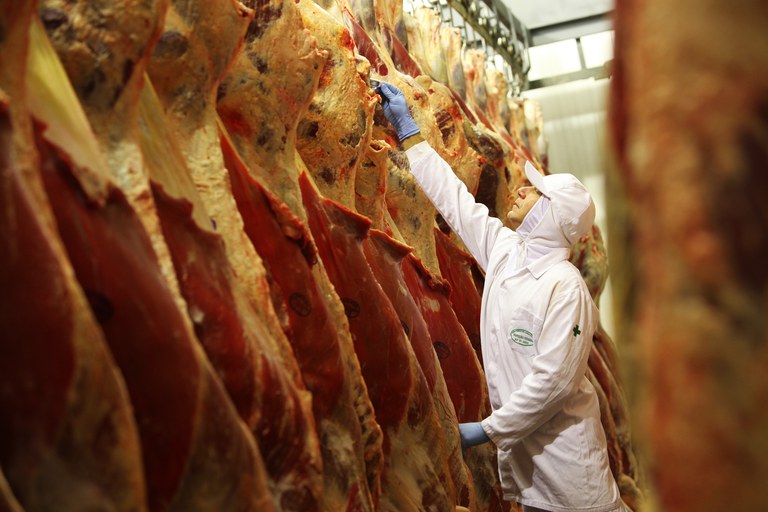São Paulo – The proceedings for Brazilian cattle, sheep and goat meat to break into Kuwait were laid down. Although that market has been open since February, negotiations were under way for the Arab country to make it official that it would accept shipments from plants previously accredited by Brazil’s Federal Inspection Service.
Additionally, the Ministry of Agriculture and Livestock (MAPA) was waiting for the definition of the requirements of the International Sanitary Certificate (CSI) that companies must meet in order to export, MAPA Foreign Trade and Relations assistant secretary Flávio Campestrin Bettarello told ANBA in February.
The requirements were made official on March 25. They include the requirement that the animals have been “slaughtered in an approved meatpacker under the supervision of the competent authority of the exporting country and approved by the GCC authorities.” GCC is an acronym for the Gulf Cooperation Council.

According to MAPA, the requirements have been published on an online system tied to DIPOA, which is responsible for assuring the quality of edible and inedible products of animal origin intended for the domestic and foreign market as well as imports. Brazil’s ambassador in Kuwait, Norton Rapesta, has confirmed that the matter was settled.
Kuwait doesn’t have its own list of accredited plants in the countries it buys from, so it will follow the list of plants accredited by the Brazilian government that meet its requirements. Brazilian companies can now make their way into a market that imports USD 200 million worth of beef each year.
The secretary believes that the country may not match the volume of giants such as China but has other advantages. “Kuwait fits our policy of diversifying destinations as announced by minister Tereza Cristina. The more destinations we can break into, more efficiency and control in volatility we’ll find. For demand- and price-related reasons, diversification is key,” he explained.
Another point in favor of the Arab country is the prominent role the region has taken. “Kuwait is part of one driver in the growth of protein consumption that is the Middle East. The main driver is Asia, propelled by China and the Southeast Asia. Then comes the Middle East,” the executive pointed out.
To better understand the share that Brazil can compete on, Bettarello compares the nation’s potential with the US’. “Countries like the United States, which has a similar competitiveness, exports from USD 20 million to USD 21 million to Kuwait each year. But this is not for now, of course. An opened-up market is not enough; we must promote the product. We have to put it out there,” the secretary said. He believes that being in Kuwait is strategical. “It’s key for diversifying and strengthen our presence both in the region, which is hugely important, and North Africa. It’s always beneficial to strengthen a demanding market, because it is a recognition for our product,” the secretary explained.
According to companies of the sector, Brazil shipped 4,000 to 5,000 tonnes to Kuwait until 2013 before the product was banned in the country, and overall Kuwait now purchases 40,000 tonnes each year. Kuwait shut out to the Brazilian beef in 2013 due to one atypical case of bovine spongiform encephalopathy, also known as the mad cow disease, that was recorded in Paraná.
The embargo was lifted in 2015, but exports were not cleared because the negotiations on certification and documentation were still in course. The opening-up was a topic addressed by minister of Agriculture, Tereza Cristina, with authorities in Kuwait during her visit to the country in the second half of 2019.
Translated by Guilherme Miranda




